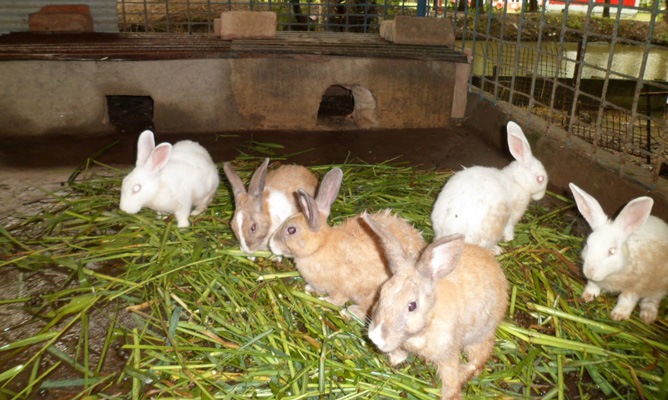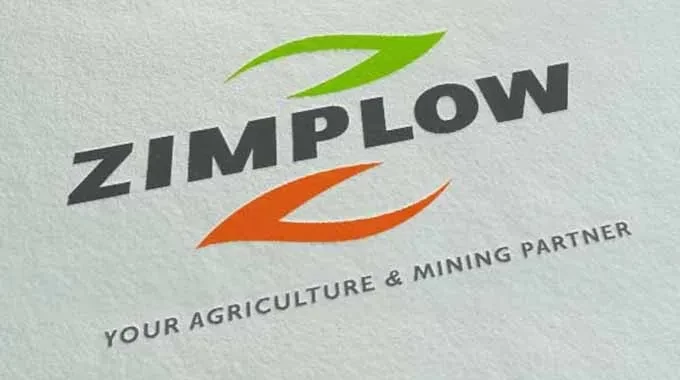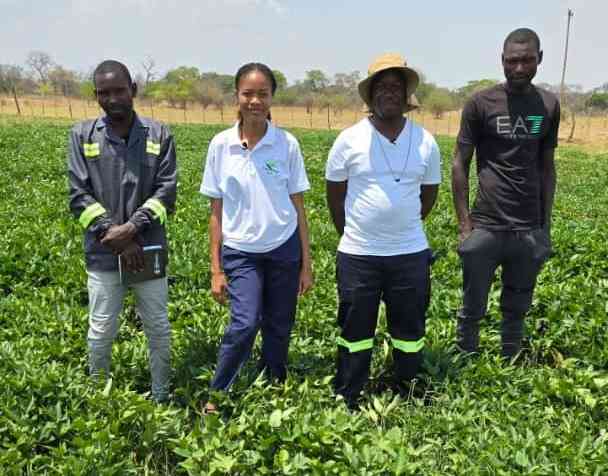
By Mthandazo Nyoni FAMED for her contribution to the growth of the rabbit sector in Zimbabwe, Paidamoyo Nyamakanga has broken the glass ceiling in an industry which was predominantly male to become the doyenne of the sub-sector.
Not only has she turned the fortunes of the rabbit industry in Zimbabwe for the better by introducing game-changing strategies, but has also lured women and youth in agriculture to join the bandwagon.
Nyamakanga’s journey in the cuniculture industry started a few years back but made a significant impact in 2021 when she embarked on a pure-breed rollout programme that has seen many rabbit farmers throughout the country benefiting from donations of pure breed rabbits, feed, cages as well as training.
“To date, over 200 pure breed rabbits have been donated to farmers in Zimbabwe’s 10 provinces. From the first round of donations, over 300 kits have so far been kindled, increasing the pool of pure breed rabbits in the country,” she said.
“I sleep better at night knowing that I made a good impact in people’s lives and made a positive difference that will outlive me,” she added.
The executive director of Raymeg Holdings, Nyamakanga is a holder of a Master of Arts in International Studies from the University of Nairobi. She boasts over 15 years’ experience in international relations, international trade, international policy analysis, public relations, marketing, business development, human resources, project management and general management.
Raymeg Holdings, a corporate member of the Zimbabwe Commercial Rabbit Breeders Association (Zicorba), is a diversified company with interests spanning strategic communication, farming, real estate, leisure resorts as well as retail and finance.
Zicorba is the only collective voice of rabbit farmers in Zimbabwe formed in July 2020 by a group of rabbit farmers.
- Chamisa under fire over US$120K donation
- Mavhunga puts DeMbare into Chibuku quarterfinals
- Pension funds bet on Cabora Bassa oilfields
- Councils defy govt fire tender directive
Keep Reading
Ever since then, the association has struck strategic partnerships with a number of rabbit farmers’ associations in Africa, including Botswana, Kenya, Mozambique, South Africa and Uganda.
Zicorba has, in its first year of existence, wooed local businesspersons to invest in what was previously a neglected subsector.
Wife to the first Zicorba national president, Regis Nyamakanga, she is also an advocacy specialist with experience working in the business membership organisations fraternity in East Africa.
Raymeg built from scratch a US$1 million export-certified abattoir in Harare which has a capacity to slaughter between 2,5 and 3,5 tonnes of rabbits in a single eight-hour shift. The facility, the first ever rabbit slaughter house in the country, is also certified by the Halaal Council of Zimbabwe to ensure that it distributes rabbit meat countrywide.
“The abattoir has a capacity to slaughter between 2 500 to 3 500 rabbits in a single 8-hour shift and we encourage local farmers to raise rabbits which can be supplied to the abattoir,” Nyamakanga said.
In line with expansion projects for the industry that’s so dear to her heart, Nyamakanga also highlighted that the construction of a rabbit meat hub was currently in the pipeline.
“In the first half of this year, a rabbit meat hub, the first of its kind in Africa which will be the centre for rabbit distribution, will be opened in Harare,” she said.
Driven by passion to grow the rabbit industry in Zimbabwe and the upliftment of women and youth, Nyamakanga’s desire is to see more women participate in the rabbit industry.
“Many women and youth included have welcomed rabbit rearing as a sustainable income-generating project and have been actively participating in the programme,” she said.
Apart from managing the abattoir and the new rabbit meat hub, Nyamakanga runs a rabbitry in Harare with over 500 pure breed rabbits. Her intention after the second round of pure breed rollout is to increase the pure breed breeding stock at the rabbitry to more than 2 000.
She also sees a huge potential in the rabbit sector and believes that if the cuniculture industry is well supported it has the potential to contribute immensely to the country’s Gross Domestic Product.
“Zimbabwe can easily become the world’s leading rabbit meat producer if more farmers are supported to reach their potential,” she said.
The ardent reader and philanthropist, heads a staff complement of more than 50 in Zimbabwe. Raymeg also has operations in South Africa, Kenya and the Horn of Africa region.
“She is results driven, a team player, a great mentor with exceptional interpersonal and communication skills,” said one of her staff members.
Nyamakanga is also an environmentalist at heart who enjoys planting trees to beautify the environment.
Rabbit farming has significant potential to generate foreign currency through exports.
It can also improve food security and nutrition in developing countries.
The increase in consumption of rabbit meat is partly driven by health conscious residents, who need meat that has less on cholesterol.
Rabbit meat products are also said to possess medicinal properties, and the meat has a higher percentage of easily digestible protein.
In addition, rabbit meat has low fat and calories, less sodium content and a high meat-bone ratio.
End products that are obtained from rabbits such as fur and manure even make breeding rabbits more attractive to small scale and urban farmers.
Aside from the highly nutritional meat, rabbit dung can be used as fertilizer, and the urine can be used as a pesticide.
Farmers said the main advantage of rearing rabbits was that their offspring grew fast and reach breeding and marketing age faster than other livestock.
This has turned rabbit farming into one of the most coveted and burgeoning enterprises in Zimbabwe.
- This article first appeared in the Weekly Digest, an AMH digital publication
- Follow Mthandazo on Twitter @MthandazoNyoni











